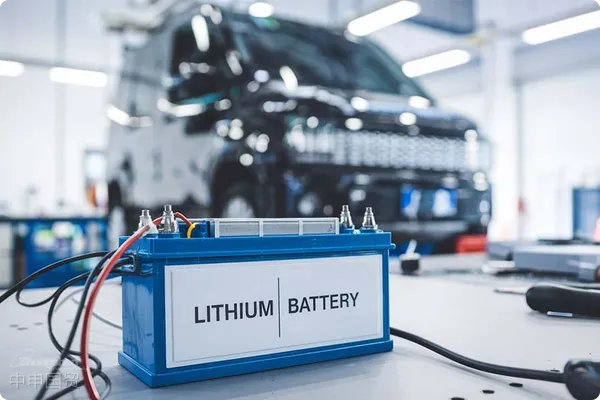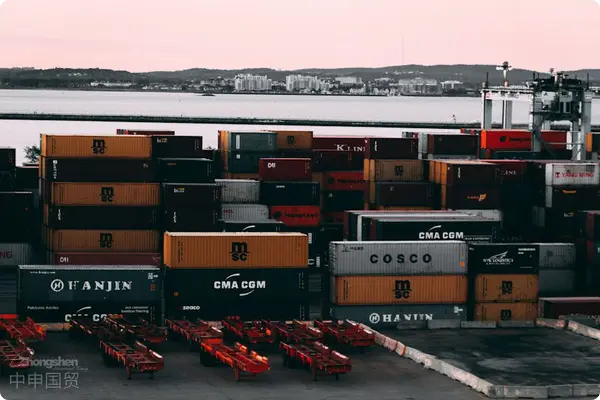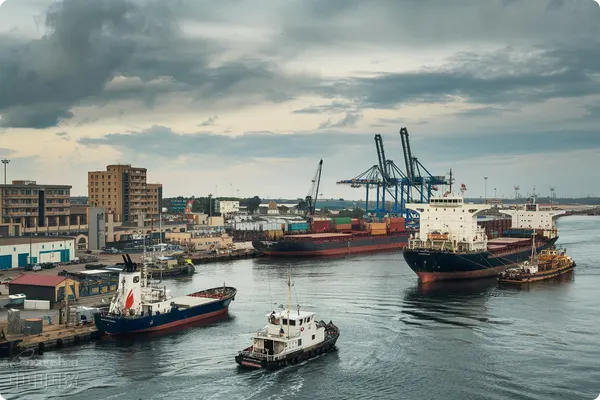- Shanghai Zhongshen International Trade Co., Ltd. - Two decades of trade agency expertise.
- Service Hotline: 139 1787 2118
As high - tech products, the export of lithium - ion batteries involves complex regulations and transportation requirements. A slight oversight may lead to cargo delays or even fines. Are you still troubled by the export problems of lithium - ion batteries? Dont worry! This article will analyze the key regulations and common problems in the export of lithium - ion batteries for you.
During the export process of lithium - ion batteries, a series of problems often occur, mainly involving their special properties, international transportation regulations, and the regulatory requirements of the destination country.

I. Basic Knowledge of Lithium - Ion Batteries
What are the common types of lithium - ion batteries?
According to the working principle, lithium - ion batteries are mainly divided into two categories:
- Lithium metal batteries: Using manganese dioxide as the positive electrode material, metallic lithium or its alloy as the negative electrode material, and using a non - aqueous electrolyte solution.
- Lithium - ion batteries: Using lithium - alloy metal oxide as the positive electrode material, graphite as the negative electrode material, and using a non - aqueous electrolyte.
What are the common United Nations Dangerous Goods Numbers for lithium - ion batteries?
According to the United Nations Recommendations on the Transport of Dangerous Goods - Model Regulations (TDG), lithium - ion batteries are assigned different United Nations Numbers (UN Numbers) according to their dangerous characteristics and regulatory requirements:
- Lithium - ion batteries transported separately:
- Lithium - metal batteries:UN3090
- Lithium - ion batteries:UN3480
- Lithium - ion batteries installed in equipment:
- Lithium - metal batteries:UN3091
- Lithium - ion batteries:UN3481
- Vehicles or self - propelled devices driven by lithium - ion batteries:
- Such as electric vehicles, electric bicycles, balance bikes, electric wheelchairs, etc. The United Nations Numbers includeUN3171,UN3556,UN3557etc. (The United Nations Numbers for lithium - ion battery vehicles are being adjusted).
II. Regulatory Requirements
What are the domestic and foreign regulations and standards related to the supervision of lithium - ion batteries?
International regulatory requirements:
- United Nations Recommendations on the Transport of Dangerous Goods - Model Regulations (TDG)
- International Maritime Dangerous Goods Code (IMDG Code)Maritime TransportationTechnical Instructions for the Safe Transport of Dangerous Goods by Air of the International Civil Aviation Organization (ICAO - TI)
- Lithium - ion batteries are classified asAir TransportationClass 9 dangerous goods
. Except when meeting the exemption conditions, lithium - ion batteries should adopt dangerous goods packaging that complies with international regulations during transportation.Domestic regulatory requirements:Commodity Inspection Law:
Performance Inspection of Dangerous Goods Packaging
According to the Law of the Peoples Republic of China on Commodity Inspection, lithium - ion batteries for export need to use packaging containers that have passed performance inspection:import and export: Lithium - ion battery packaging manufacturers need to apply to the local customs. After passing the inspection, they will obtain the Results Sheet of Performance Inspection of Export Dangerous Goods Packaging.
- Use Appraisal of Dangerous Goods Packaging: After the packaging is completed, lithium - ion battery export enterprises apply to the local customs. After passing the inspection, they will obtain the Results Sheet of Use Appraisal of Export Dangerous Goods Packaging (commonly known as the Dangerous Package Certificate).
- What are the conditions for lithium - ion batteries to be exempt from the Dangerous Package Certificate?According to international regulations, lithium - ion batteries in the following situations can be exempt from the dangerous goods packaging requirements, that is, no Dangerous Package Certificate is required:
III. Regulatory Requirements for Exporting Lithium - Ion Batteries
Lithium - ion batteries installed in equipment
Vehicles, such as electric vehicles, electric bicycles, etc., can be exempt from the dangerous goods packaging requirements.
- Small - sized lithium - ion batteries or battery packs, meeting the following conditions:
- : The lithium content of a single battery does not exceed1 gram
- Lithium metal batteries, and the total lithium content of the battery pack does not exceed2 grams: The rated energy of a single battery does not exceed, and the rated energy of the battery pack does not exceed.
- Lithium - ion batteries: The rated energy of a single battery does not exceed20Wh, and the rated energy of the battery pack does not exceed100Wh.
The above-mentioned batteries shall comply with all requirements in the International Maritime Dangerous Goods Code (IMDG Code).Special Provision 188Only when all the requirements are met can the packaging of dangerous goods be exempted.
: For goods exported to Thailand, the value - added tax rate isNote: The exemption only waives the requirement for the Certificate of Packing of Dangerous Goods, but the outer packaging shall still indicate the rated energy (Wh) and bear appropriate lithium battery markings.
What are the regulatory requirements for the export ports of lithium batteries?
At the export port, the customs will verify the Certificate of Packing of Dangerous Goods issued by the local customs, mainly checking the following contents:
- Packaging InformationCheck whether the packaging type, UN marking, lithium battery marking, etc. are consistent with the actual goods.
- Quantity checkConfirm that the actual export quantity is consistent with the declared quantity.
Common non - compliant situations:
- Failure to provide the Certificate of Packing of Dangerous Goods as requiredFailure to apply for the Certificate of Packing of Dangerous Goods when the exemption conditions are not met.
- Non - standard markingThe outer packaging does not bear the lithium battery marking as required, or the marking is covered.
IV. Answers to Specific Business Questions
Does Article (h) of TDG Special Provision 188 include the weight of the equipment?
Answer:It does not include the weight of the equipment.Article (h) of Special Provision 188 is for the situation of transporting batteries alone, and it limits the total weight (gross weight) of each package, which has nothing to do with the weight of the equipment.Can the lithium - battery transportation label be printed on A4 paper by oneself?Not recommended.
It should be clearly visible after at least 3 months of seawater immersion. It is recommended to use professional durable materials for production.
Answer:Answer: According to the provisions of the United Nations Recommendations on the Transport of Dangerous Goods - Model Regulations:A4 paper is prone to damage or detachment. According to shipping requirements, transport labels must withstandWhen the label is affixed to a background with a contrasting color, a dotted border may not be required.Labels without a dotted border are qualified under the above - mentioned conditions.
Does Class 9 Hazardous Goods Transport Label Under TDG Require a Dotted Border? Are Labels Without Dots Compliant?
If lithium batteries meet the conditions for general cargo transportation, is it necessary to affix a transportation label?5.2.2.2Answer: Even if lithium batteries meet the exemption conditions of Special Provision 188, the following requirements still need to be complied with:
- The outer packaging shall bear the lithium - battery marking.
- (red dotted border, battery pack and fire - ignition pattern)..
Comply with packaging and marking requirements
but other dangerous - goods transportation regulations can be exempted.
- If a lithium - battery pack meets the exemption conditions of Special Provision 188, should dangerous goods be checked during declaration?It should be checked.
- Although some requirements are exempted, lithium - battery packs essentially still belong to dangerous goods. According to the customs standardized declaration requirements, dangerous goods should be checked when declaring at the single window.How to handle the use appraisal of a lithium - battery energy - storage cabinet whose size exceeds the scope of use appraisal of dangerous - goods packaging?
Answer: For large - scale equipment such as energy - storage cabinets containing lithium batteries:
Answer:There is no need to handle the use appraisal of dangerous - goods packagingbecause it does not belong to the category of packaging that needs to be inspected.
Comply with relevant safety requirements during transportation and provide a description of the equipment during declaration.
Can imported lithium - ion batteries be imported with a UN38.3 test report?Yes.Imported lithium batteries do not need to undergo dangerous - goods packaging inspection, but it is necessary to provide compliance with
- to prove their safety.According to the IMDG Code, the exemption clauses for lithium batteries are not limited to Special Provision 188. Do other provisions such as Special Provision 310 apply?
- SuggestionsYes
Can imported lithium - ion batteries be imported with a UN38.3 test report?
Answer:Yes.. Imported lithium - ion batteries do not need to undergo dangerous goods packaging inspection, but need to provide compliance withReports required for UN38.3 testingto prove their safety.
According to the IMDG Code, are there more exemption clauses for lithium - ion batteries than Special Provision 188? Do other provisions such as Special Provision 310 apply?
Answer:Yes.For the export of lithium - ion batteries, corresponding special provisions of the IMDG Code shall be complied with according to the specific mode of transportation and product characteristics. If eligible, corresponding exemption clauses can be applied.
V. Friendly Reminder
Consult professional institutionsIf you have any questions, it is recommended to consult professional freight forwarding companies, customs or testing institutions to obtain accurate guidance.
Plan in advanceBefore exporting lithium - ion batteries, it is necessary to be familiar with relevant international and domestic regulatory requirements and prepare the required documents in advance.
Operate in complianceEnsure that the products meet the UN38.3 test requirements and use packaging and markings correctly.
Related Recommendations
? 2025. All Rights Reserved. Shanghai ICP No. 2023007705-2  PSB Record: Shanghai No.31011502009912
PSB Record: Shanghai No.31011502009912










